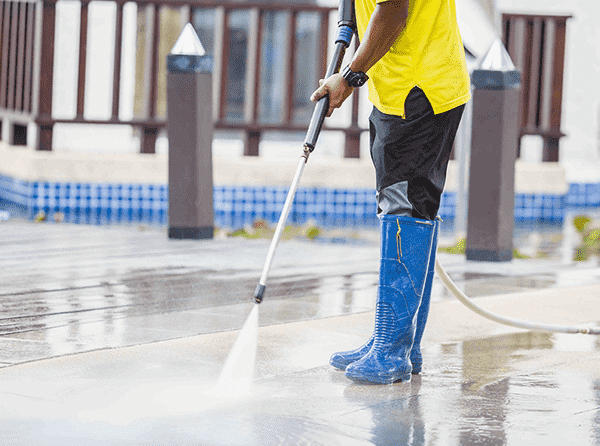Specialist Tips for Caring for Your Power Washer

Pressure washing is an effective way to enhance the appearance of your house and premises, delivering a deep clean that can eradicate grime, grime, fungus, and mildew. If you want to maintain the condition and beauty of your surfaces, mastering the art of pressure washing is essential. Whether you are a newbie or have some experience, understanding the best practices for maintaining your pressure washer can save you minutes, money, and stress in the future.
Regular cleaning not only improves curb appeal but can also add to the durability of your surfaces, from driveways to decks. With adequate care, your pressure washer can become a reliable tool that helps you tackle a wide range of cleaning jobs around your property. In this manual, we will explore key tips for maintaining your pressure washer, ensuring it remains in peak performance for years to come.
Comprehending High-Pressure Cleaning
Pressure washing is a effective cleaning method that employs high-pressure water spray to get rid of grime, stains, mold, fungus, and various pollutants from different surfaces. This technique is frequently employed on homes, parking areas, porches, sidewalks, and industrial locations. The effectiveness of pressure washing lies in its capability to get to surfaces that are difficult to clean by conventional methods, making it a favored option for residential customers and commercial clients alike.
One of the notable characteristics of power washing is that it enables users to modify the force of the spray according to the material being cleaned. This versatility makes it suitable for a spectrum of applications, from durable materials like cement and clay to more delicate materials like wood and vinyl. By following the necessary guidelines, individuals can get complete cleanliness without damaging to the underlying materials.
As you dive into the world of pressure washing, it's important to grasp the varying techniques, equipment, and detergents that can improve the cleaning process. With the proper instruments and understanding, power washing can greatly enhance the aesthetic and longevity of a property while also providing a boost to its visual attractiveness.
Do-It-Yourself vs. Expert Pressure Washing
When considering pressure washing, one of the first decisions property owners face is whether to take a DIY approach or hire a specialist. DIY pressure washing can be appealing due to cost savings and the satisfaction of finishing a project on your own. For smaller areas like decks or walkways, using a rented pressure washer can be an effective way to wash surfaces without the added expense of employing someone. However, it demands knowledge of techniques and safety precautions to avoid damaging your property.
On the other hand, expert pressure washing services offer expertise and advanced equipment to the table. Experts understand which pressures and cleaning solutions are best suited for different surfaces, ensuring thorough cleaning without causing damage. They also have the know-how to tackle tough jobs, such as removing significant mold and mildew infestations or restoring a deck, which may be too much for a novice. Additionally, hiring experts can save you time and effort, as they can complete the job quickly and effectively.
Ultimately, the choice between DIY and professional pressure washing hinges on several factors, including the scale of the project, your budget, and your confidence level with operating power tools. For minor tasks, a do-it-yourself approach may work well, while larger or more complex jobs are often best left to experts who can deliver impressive results and peace of mind.
Best Practices for Pressure Washing
As you engaging in pressure washing, getting ready is key to obtaining the best results. Begin by selecting the appropriate equipment for the job, ensuring that the pressure washer has suitable PSI and GPM ratings for the areas you will be cleaning. Collect necessary accessories such as nozzles, extension wands, and surface cleaners, and consistently read the manufacturer's guidelines for both the pressure washer and all cleaning solutions you'll use. This will help you avoid damage to surfaces while maximizing cleaning efficiency.

An additional important aspect of pressure washing is safety. Always wear protective gear, including goggles and gloves, to shield yourself from debris and dangerous cleaning agents. Make sure to check the weather conditions before starting; avoid washing on windy days or when rain is expected, as this can compromise the effectiveness of the cleaning process and lead to accidents. Properly set up Visit the website to prevent children and pets away from the work area, ensuring a safe environment throughout the cleaning session.
Finally, practice effective cleaning techniques to enhance your efforts. Start with pre-rinsing the surface to remove loose debris and then apply appropriate cleaning solutions, allowing them to dwell for a short time before using the pressure washer. Maintain a consistent distance from the surface and use smooth, sweeping motions to avoid streaks and damage. After washing, rinse off all remaining cleaning solution thoroughly, and consider following up with sealing treatments as necessary to prolong the cleanliness and integrity of the surfaces you've treated.
